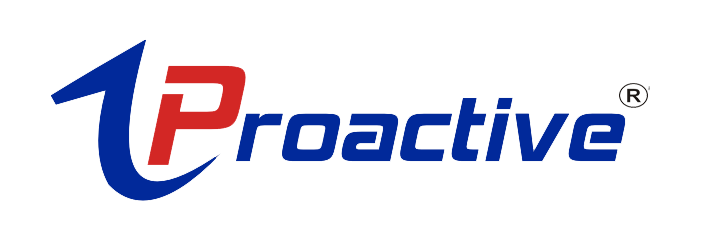The Ultimate Digital Marketing Guide: Strategies, Tips & Essential Tools
- April 22, 2024
- Digital Marketing
As consumers spend more time online across various platforms, companies need to go beyond simply establishing an online presence and strategically engage with their audience to foster growth and loyalty.
The world of Digital marketing provides countless opportunities to do just that. The important thing is to be aware of your capabilities. Choosing the right mix of execution and planning is crucial to success.
Proactive Digital, a company with over 15 years of experience in SMS, voice, and digital marketing services in India, brings you this comprehensive guide to navigating the complex landscape of digital marketing.
Navigating Major Digital Marketing Platforms
Digital marketing is a vast field that includes everything from search engine optimization (SEO) to social media outreach and content marketing. Here, we focus on the key platforms and the best practices for each.
1. Google – SEO and Google Ads
Google remains the titan of digital marketing, with its search engine and advertising solutions driving significant business results. SEO should be the foundation of your strategy, focusing on keyword research, quality content, and link building to improve your rankings.
Google Ads complements SEO by targeting specific demographics and keywords, offering quick visibility and measurable results. Utilize Google Analytics to track performance and optimize your campaigns.
2. Facebook – Social Media Engagement
Facebook is a powerful tool for building relationships with your audience. It’s ideal for brand awareness and targeted advertising, thanks to its extensive data on user behaviors and preferences.
Best practices in digital marketing include engaging content, consistent posting schedules, and interactive elements like polls and live videos. Facebook Ads can be fine-tuned to reach specific segments of your audience, making it a versatile tool for conversion-focused campaigns.
3. YouTube – Video Marketing
As the second largest search engine, YouTube offers immense potential for brand visibility through video content. Best practices here include creating engaging, high-quality videos that add value, such as tutorials, reviews, and behind-the-scenes glimpses of your company. Optimize your video titles, descriptions, and tags for SEO, and consider YouTube ads to reach a broader audience.
4. Websites – The Hub of Digital Presence
There’s a good reason why a company’s website is considered the central hub of its online presence. It is one of the few places where the publisher has full control of everything.
That’s why it should be optimized for user experience with a mobile-friendly design, fast loading times, and clear navigation.
Content should be SEO-optimized and regularly updated to engage visitors and improve search rankings. Tools like WordPress or Wix offer easy-to-use platforms for managing your digital marketing content effectively.
5. Snapchat – Reaching Young Audiences
Snapchat is ideal for targeting a younger demographic. Brands can leverage Snapchat for time-sensitive offers, behind-the-scenes content, and engaging with users through creative and playful advertising. Since content on Snapchat is ephemeral, it creates a sense of urgency and exclusivity.
6. Pinterest – Visual Discovery and Shopping
For brands with visually appealing products, Pinterest is a goldmine for driving traffic and sales in digital marketing. Use high-quality images, invest in Pinterest SEO by optimizing your pins’ titles and descriptions, and consider using Pinterest Ads to boost visibility. It’s particularly effective for industries like fashion, home decor, and cooking.
Ideal Practices and Choosing the Right Platforms
When choosing platforms, consider your business goals, target audience, and the type of content you can consistently produce. B2B companies may find more value in LinkedIn and email marketing, whereas B2C companies can benefit from the broad reach and interactive capabilities of Instagram and Facebook.
Engagement and Optimization
Consistently engage with your audience through regular posts, replies to comments, and by running interactive campaigns. Use analytics tools provided by each platform to gauge the effectiveness of your strategies and make data-driven decisions to optimize your approach.
In Conclusion
Mastering digital marketing is essential for any business aiming to thrive in today’s digital-first environment. By strategically leveraging various platforms like Google, Facebook, YouTube, websites, Snapchat, and Pinterest, companies can effectively engage with diverse audiences, enhance their brand visibility, and drive conversions.
The key lies in choosing the right platforms that align with your audience and business objectives, crafting quality content, and continuously optimizing your strategies based on performance analytics.
With these practices in place, businesses can not only achieve short-term goals but also build a sustainable and adaptable digital marketing foundation that supports long-term growth and success in an ever-evolving digital landscape.
As we look towards a future where digital channels become even more integrated into our daily lives, mastering these tools and strategies is essential for any business aiming to succeed.
FAQ Section
Q1: How often should I update my digital marketing strategy?
A: Review and update your strategy at least quarterly. The digital landscape evolves rapidly, and staying current is crucial.
Q2: How much should I budget for digital marketing?
A: Typically, businesses allocate around 10-15% of their overall budget to marketing, with 50% of that dedicated to digital. Adjust according to your company size and goals.
Q3: Is it necessary to use all these platforms?
A: Not necessarily. Choose platforms based on where your target audience spends their time and what aligns with your marketing goals.
Q4: How can I measure the ROI of digital marketing?
A: Measure ROI by setting clear KPIs like traffic, lead generation, and conversion rates. Utilize tracking tools to measure these indicators accurately.
Q5: Can digital marketing work for small businesses?
A: Absolutely. Digital marketing offers scalable and cost-effective solutions that can be tailored to the budget and needs of small businesses.









